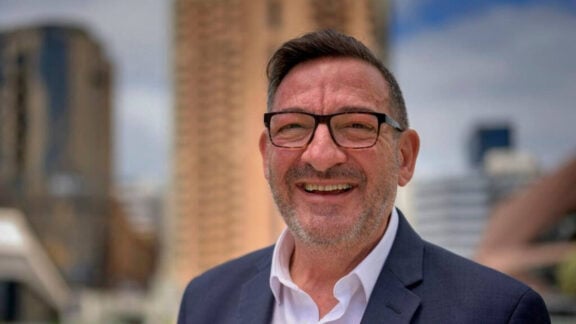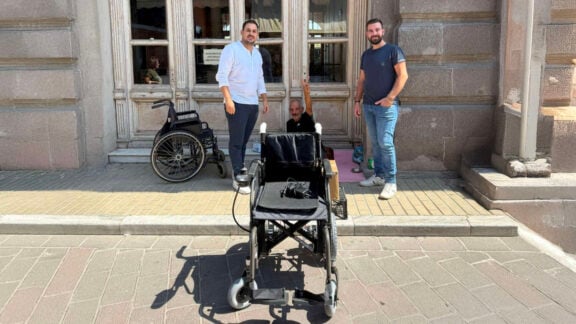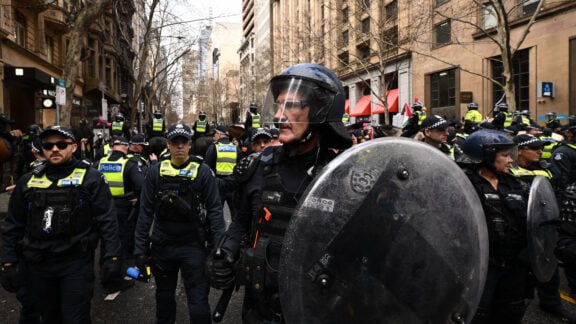It is no secret that Prince Charles has always had a special bond with Greece, the birthplace of his father.
Devastated by the most destructive wildfires the country has experienced in over a decade, Prince Charles has donated to the Hellenic Red Cross to help those affected.
“We are immensely grateful for His Royal Highness’ kind donation,” the President of the Hellenic Red Cross Antonios Avgerinos said following the donation.
“It means a great deal to the dedicated staff of the HRC and to the people of Greece who we are helping. We are working hard to assist affected people during these extremely difficult times, with the wildfires now affecting over 70,000 people. We hold a great affection towards His Royal Highness given his close family links with the country, and the HRC will continue to work tirelessly for the people of Greece who have suffered with these unprecedented wildfires.”
In a letter exclusively sent to the Daily Mail the Prince laid down his sentiments in regards to the natural and socioeconomical disaster Greece has suffered this summer, urging political and business leaders to take head and work closely towards reversing the effects of climate change for the sake of future generations.
“Owing to family connections, I have always felt a particular fascination and affection for Greece,” the Prince of Britain wrote.
“Apart from the allure of her landscapes, history and culture, both my father and grandfather were born there, which is why I was so touched to be invited earlier this year to celebrate the bicentenary of the country’s independence.
Now, five months later, it has been heartbreaking to see the devastating fires affecting Greece, Turkey, and now Italy which has just recorded Europe’s highest ever temperature.
It has been truly the stuff of nightmares to see the once blue skies above the Peloponnese, Attica and the island of Evia turn a bright orange as mile after mile of the country’s famed landscape and over 100,000 hectares of forest and farmland have been swallowed up by ferocious flames, causing the tragic loss of life, injury and the widespread destruction of so many peoples’ homes and livelihoods.
I have heard reports recently from British firefighters who rushed there to help who say they have never seen such fires. I can only imagine that their colleagues battling to bring the fires under control in California and from the west coast to the prairies in Canada would say the same.
I have lost count of the number of weather-related disasters that have hit so many countries across the Commonwealth and beyond. I have depressing memories of seeing at first-hand the devastation in the Caribbean in 2017 after it was struck by two Category Five hurricanes in the same week.
Now we see Haiti battered by Tropical Storm Grace, compounding the devastation caused by the earthquake which tragically claimed so many lives. The fires, floods and the increasingly severe droughts that have affected Australia make it very clear indeed: Our planet is in crisis and, no matter where you are, no country is immune.
Rather too many years ago than I care to remember, I tried to warn of the immense risks we were running – particularly for future generations, and for the natural world on which we depend – by not taking seriously what the scientists were saying.
The predictions last week in the Special Report of the UN’s Intergovernmental Panel On Climate Change were unequivocal. Unless we take immediate and urgent action, its scientists estimate there is an 89 per cent chance of extreme events that used to happen once a century happening every year.
As we approach COP26, the international climate change conference in Glasgow this November, this should surely serve as a wake-up call that climate change is happening now. We have been in the ‘last chance saloon’ for too long already, so if we do not confront the monumental challenge head on – and fast – we and the world as we know it will be done for.
I have long felt the challenge is far too big and far too important for any one country to address it alone. British firefighters are doing what they can to help in Greece, but we all need to race to the front line now to combat climate change as a whole. As the UN Panel stressed, there is still time to do this, but only just.
This is why I have long believed that the private sector, with its trillions of dollars, has an absolutely critical role to play in an effective and practical partnership with governments, NGOs, charities and individuals. Unlocking the enormous investment potential in the private sector could accelerate the world towards a game-changing green transition – which is why, over the past 18 months, I have spent a great deal of time trying to bring the world’s leading businesses together, sector by sector, to that end.
The aim has been to create a ‘coalition of the willing’ and I have challenged them to see what we could do to overcome endemic obstacles in order to accelerate the practical transition to a greener future ahead of COP26 and beyond.
With their help, in January this year we launched what is called the ‘Terra Carta’, a voluntary charter for the private sector which sets out the basis of a decade-long recovery plan founded upon adopting sustainable solutions.
In signing the Terra Carta, business leaders declare that genuine sustainability is not a fad; it must inform and lie at the heart of all their business activities. In just seven months, I am pleased to say we have won the support of more than 400 leading companies.
In view of the fact that we have been busily testing our world to destruction and have left everything to the last minute, so that time is rapidly running out, they can only hope to win this epic battle if their counterparts in governments work with them to create the right conditions for an accelerated green transition.
This is why COP26 is so crucially important for our very survival on this increasingly over-heating planet – something our children and grandchildren are rightly and deeply concerned about.
The ‘coalition of the willing’ joins me in hoping that the conference will deliver the transformational decisions and the roadmap for change for which our planet is crying out.
We now have no alternative – we have to do all we possibly can in the short time left to us to avoid the enormous climate catastrophe that has already begun to show its face in the most terrifying ways, most recently in the Mediterranean.
World leaders, working closely with the private sector, have the power to make the difference. COP26 affords them an opportunity to do so before it is finally too late.”









